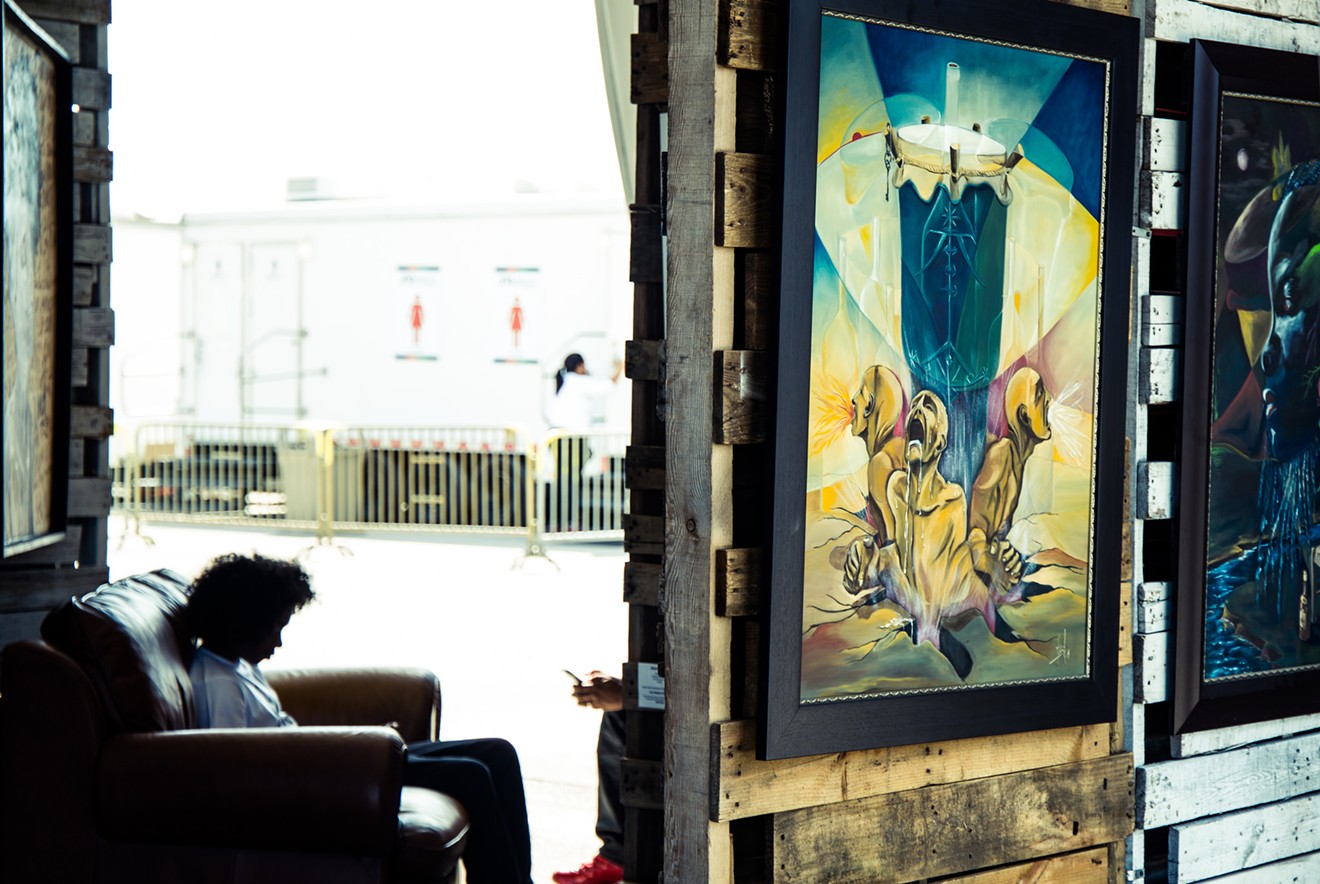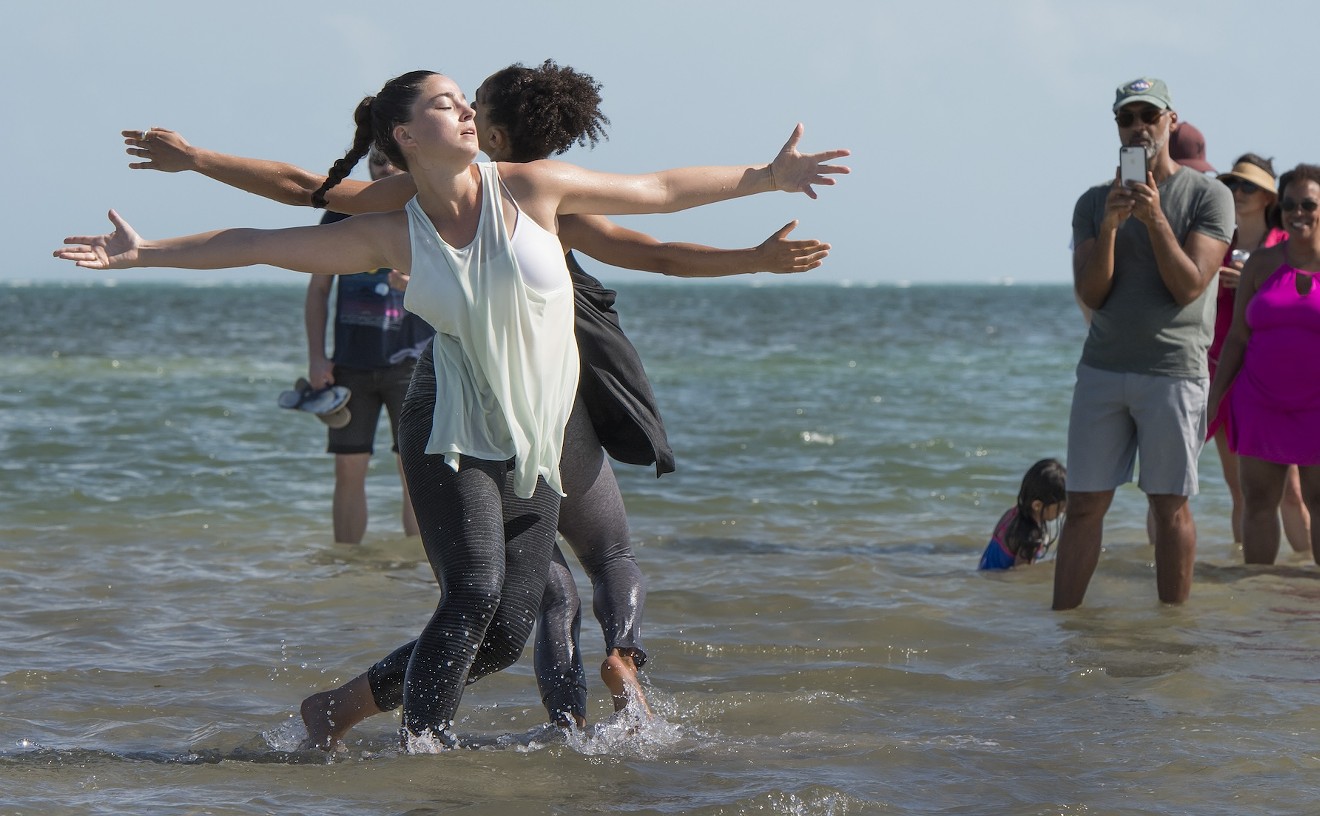You can’t pinpoint the exact moment it began happening. Was it when Run-D.M.C. collaborated with Aerosmith, or when "Baby Got Back" started showing up in karaoke bars? Was it closer to when J.Lo's ass became the universal standard, or when Kanye married Kim? Either way, we now have Taylor Swift onstage rapping along to "Trap Queen" and high-school football quarterbacks using Drake lyrics in prom proposals. There's no reversing the fact that hip-hop, and black and Latino culture in general, is a part of mass consumption in a way it never has been before. Some might ask why you’d ever want to reverse that.
But as exposure increases, so do the marginalized's honest looks at the culture. You don’t need another person to point out the importance of movies like Moonlight, shows like Atlanta and Awkward Black Girl, and movements like Black Lives Matter. But what all of these representations have in common is the exposure, in varying degrees, of a culture that has long exploited people of color and that continues to do so at a rate that intensifies as visibility increases. All right. So what do you do with that?
One approach might be to start locally — and in Miami, it’s not like you’re lacking options.
“We are a true melting pot, and we have the aptitude to be able to have people experience different things from all over the world right here,” says Papa Keith, the longtime Miami DJ and founder of the People Matter Festival. “We're in the perfect place for it.”
Though the Magic City might be more of a melting pot than, say, Wichita, Kansas, it doesn't differ from most American cities in one important way: The neighborhoods that would benefit from that "melting" tend to be isolated, impoverished, and black. But there are efforts to change that — to bring these neighborhoods out of neglect in a way that not only benefits the physical area but also empowers and enriches the people in it.
"We wanted people to start reimagining these spaces," explains Ashlee Thomas, president of the Miami Urban Contemporary Experience (MUCE), an organization that has been curating art shows and events in heritage neighborhoods in Miami for three years. "We noticed that people thought Miami was only Miami Beach, so we started saying, 'Come to the other side of the bridge.'"
The other side of the bridge includes neighborhoods such as Liberty City, Little Haiti, and El Portal, and the shows specialize in work by people of the African and Latin diasporas. MUCE has been at Jazz in the Gardens and various Art Basel events, but this year its organizers have decided to kick off their Summer Series at the People Matter Festival. The connection was an easy one, because MUCE organizing partner and curator Bart Mervil is a longtime friend of Papa Keith’s.
“Papa Keith wanted to make sure that art was part of this conversation,” Thomas says, “that people are exposed to artists in their area.”
“I thought it could be great for the kids, the millennials, the less fortunate,” Papa Keith says. “Maybe you can’t make it to Wynwood, but I can bring Wynwood to you.”
Of course, it’s not as easy as inviting people over for some food, art, and a good time. And Miami in particular has a tendency to hijack neighborhoods via the arts and arts businesses. Developers and art sellers alike already have fingers in the Little Haiti pie while residents watch an increasing number of art galleries and communes pop up in some of the only reasonable real estate left near the center of the city.
Thomas acknowledges the complexity, though her approach is optimistic. “Gentrification is a huge topic; it’s unavoidable. But what if we created spaces where people could exchange culture and enjoy each other? Art allows people to have conversations that are harder to have in political or corporate settings. Economics, viability, sustainability — when you have great art, music, food, you can bring up some of these topics.”
This attitude differs slightly from what drove Papa Keith to organize the People Matter Festival, although the challenges he has faced while making it happen might also disrupt it. The fest was originally slated to happen in Charles Hadley Park in Liberty City and was set to include performances by Trick Daddy, Ball Greezy, and Zoey Dollaz. But the neighborhood wasn’t having it. After three meetings with the surrounding homeowners' association and local police — during which it was clear the event was calling for a 24-hour ceasefire in all of Miami-Dade and would focus on positive outcomes for the neighborhood — Papa Keith and Commissioner Keon Hardemon were told the fest simply wouldn't happen.
“They didn’t want angry black men in their park,” Papa Keith says. “I've never been so appalled. It was all negative. There was nothing positive at the meetings I went to. I just let them talk: ‘We understand what you're trying to do, and we think it's noble. But not here.'”
Though the opposition might have been discouraging, it only strengthened the organizers' resolve to present this event not in Wynwood or Bayside, but in an area that needed it.
“I’m trying to go to the core of people who feel like they have nothing to live for and connect with them and let them know that they matter, and how they matter. With that mission, I found myself in the very inner cities,” he explains. “Unfortunately, there’s little to nothing that happens in that community that caters to that younger crowd. Millennials have been given up on. The baton wasn't passed at all, or properly. I don’t think the millennials were schooled on how powerful they are, on why these lines are sacred, and why we need to defend them. Less and less people have respect for protecting the land. Gentrification and everything else is going to happen because there aren't enough people fighting it.”
MUCE might seem to cater more to audiences outside those neighborhoods, by comparison, but it works in tandem with the goals of the People Matter Festival. MUCE has exposed artists in neglected neighborhoods to institutions that would otherwise have passed them over, while bringing people into areas they’ve avoided for all the wrong reasons.
“These areas have art and beauty in them. We can highlight it for you,” Thomas reiterates. “And you can go explore it more after this.”
“That’s why we chose to be the ambassadors to actually activate these active platforms,” Mervil adds. “If we didn’t take it on ourselves, then nobody else would. Our passion is to make sure that blacks and Latinos are represented. At the end of the day, it’s nobody else’s job to do it.”
Whether it’s coming from the inside or the outside, the work isn’t straightforward. But when it comes to those who would approach these venues from elsewhere — who are traveling to these neighborhoods for their food, their art, and their culture — the issue becomes less about where you stand on that line and more about how much you’re willing to give back. It’s clear that lifting these neighborhoods up from within and encouraging their exposure to the outside are equally important and ultimately most effective when accomplished together.
“They both need to happen,” Papa Keith asserts. “If you treat people like caged animals, where are you supposed to start?”
The People Matter Festival With the MUCE Summer Series
1 p.m. Saturday at Athalie Range Park, 525 NW 62nd St., Miami. Admission is free. Visit peoplematterfest.com and muce305.org.
[
{
"name": "Air - MediumRectangle - Inline Content - Mobile Display Size",
"component": "19274298",
"insertPoint": "2",
"requiredCountToDisplay": "2"
},{
"name": "Editor Picks",
"component": "17482312",
"insertPoint": "4",
"requiredCountToDisplay": "1"
},{
"name": "Inline Links",
"component": "18711090",
"insertPoint": "8th",
"startingPoint": 8,
"requiredCountToDisplay": "7",
"maxInsertions": 25
},{
"name": "Air - MediumRectangle - Combo - Inline Content",
"component": "17482310",
"insertPoint": "8th",
"startingPoint": 8,
"requiredCountToDisplay": "7",
"maxInsertions": 25
},{
"name": "Inline Links",
"component": "18711090",
"insertPoint": "8th",
"startingPoint": 12,
"requiredCountToDisplay": "11",
"maxInsertions": 25
},{
"name": "Air - Leaderboard Tower - Combo - Inline Content",
"component": "17482313",
"insertPoint": "8th",
"startingPoint": 12,
"requiredCountToDisplay": "11",
"maxInsertions": 25
}
]













